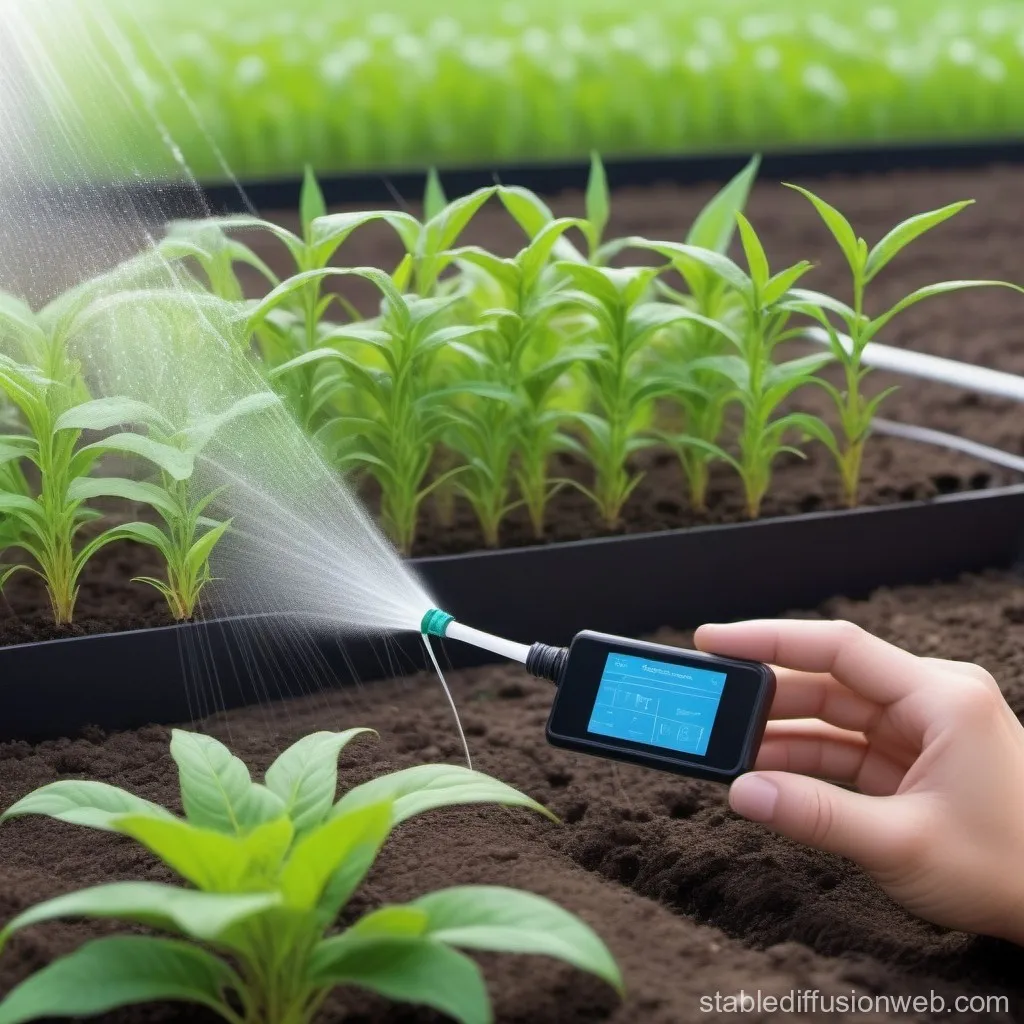In the heart of Tunisia, a groundbreaking study led by Bamory Ahmed Toru Koné from the Faculty of Economics and Management in Sfax is set to revolutionize how farmers understand and predict soil moisture. The research, published in the journal *Smart Agricultural Technology* (translated as *Intelligent Agricultural Technology*), combines the power of large language models (LLMs) with machine learning (ML) to create a more interpretable and user-friendly soil moisture prediction system. This innovation could significantly impact sustainable agricultural practices, particularly in regions grappling with water scarcity and climate change.
Soil moisture prediction is a critical component of modern agriculture, enabling farmers to optimize irrigation and conserve water. However, the complex nature of ML models often renders their predictions incomprehensible to non-expert users. Koné and his team have addressed this challenge by developing a framework that leverages LLMs to generate semantic explanations based on a proposed irrigation and soil moisture ontology. This ontology formalizes essential agricultural concepts and their interrelationships, making the model’s predictions more understandable to farmers.
“Our approach bridges the gap between sophisticated model results and practical decision-making,” Koné explained. “By providing semantically rich explanations, we aim to make AI more accessible and useful for farmers, ultimately promoting sustainable agricultural practices.”
The prototype system developed by Koné’s team not only predicts soil moisture but also offers user-friendly explanations. This enhanced interpretability could lead to wider adoption of AI in agriculture, empowering farmers to make informed decisions about irrigation and water management. The study highlights the potential of combining advanced ML techniques with semantic reasoning to improve the interpretability and adoption of AI in agriculture.
The implications of this research extend beyond the agricultural sector. As water scarcity becomes an increasingly pressing global issue, efficient water management practices will be crucial for sustaining both agricultural productivity and the energy sector. By enabling more precise and understandable soil moisture predictions, this technology could contribute to more sustainable water use and reduced energy consumption in irrigation systems.
“The integration of LLMs and ontologies in soil moisture prediction models represents a significant step forward in the field of explainable AI (XAI),” Koné noted. “This approach has the potential to shape future developments in agricultural technology, making it more accessible and beneficial for end-users.”
As the world continues to grapple with the challenges of climate change and water scarcity, innovations like Koné’s offer a glimmer of hope. By making AI more interpretable and user-friendly, this research could pave the way for more sustainable and efficient agricultural practices, ultimately benefiting both farmers and the environment. The study, published in *Smart Agricultural Technology*, underscores the importance of interdisciplinary collaboration in addressing global challenges and driving technological advancements in the agricultural sector.

